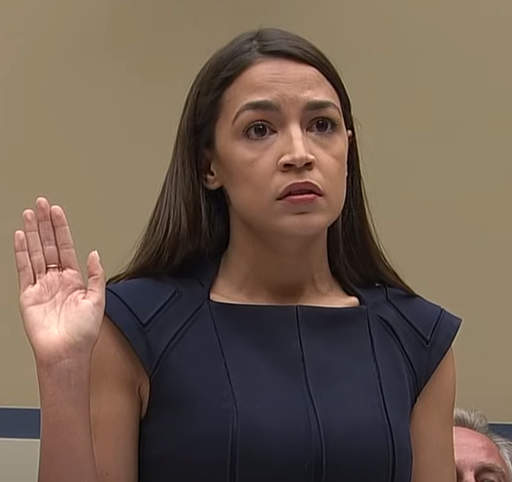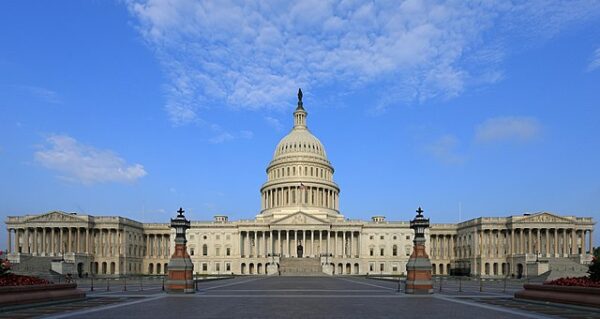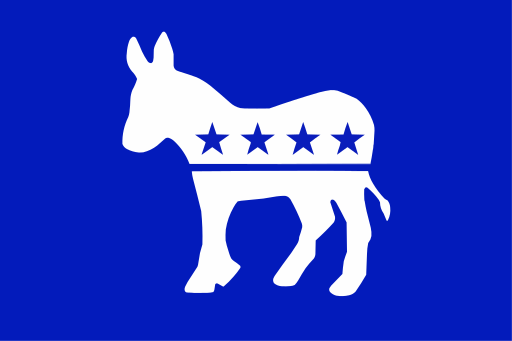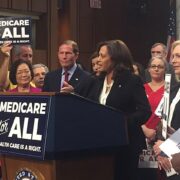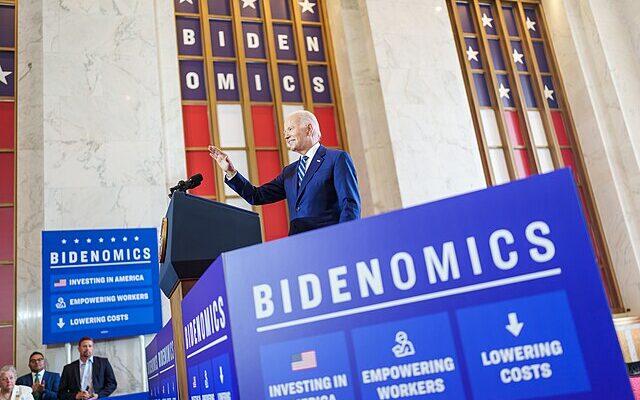
Democrats are finally beginning to worry that Biden’s biggest piece of legislation, The Inflation Reduction Act, did not work to reduce inflation.
Adding trillions of dollars to the deficit did not beat out the grand strategy of giving a gigantic spending bill a hopeful name.
CNBC reported, “Wholesale prices accelerated at a faster-than-expected pace in February, another reminder that inflation remains a troublesome issue for the U.S. economy.
The producer price index, which measures pipeline costs for raw, intermediate and finished goods, jumped 0.6% on the month, the Labor Department’s Bureau of Labor Statistics reported Thursday. That was higher than the 0.3% forecast from Dow Jones and comes after a 0.3% increase in January.
Excluding food and energy, the core PPI accelerated by 0.3%, compared with the estimate for a 0.2% increase. Another measure that also excludes trade services rose 0.4%, compared with the 0.6% gain in January, and was above the estimate for a 0.2% advance.
On a year-over-year basis, the headline index increased 1.6%, the biggest move since September 2023.”
Now, as the election nears, Biden officials are saying they regret telling the American public that they solved inflation.
Treasury Sec. Janet Yellen said on Monday that she regrets saying inflation was transitory back in 2021, a sentiment she expressed in January as well. “I regret saying it was transitory,” Yellen said Monday. “It has come down. But I think transitory means a few weeks or months to most people,” according to The Washington Examiner.
Never mind that the administration was warned about this as early as February 2021 or that it was clear by November 2021 that inflation was not, in fact, transitory. Yellen only now “regrets” her comments, which were either intentionally misleading or unintentionally so based on terrible analysis, because it is an election year. Grocery prices are 25% higher than they were before the pandemic, and people rate the economy as the top issue they want the president to address.
As Yellen has illustrated, the Biden administration’s strategy of downplaying the scope and severity of inflation hasn’t worked, so now they want to beg voters for their forgiveness. It is the same reason that President Joe Biden said that he wished he didn’t call his climate bill the “Inflation Reduction Act,” even though that was a conscious decision Biden and Democrats made in order to pass a climate bill under the guise of addressing people’s concerns about inflation.
The problem for Biden and his team involved the fact that they were casting wishes rather than pushing a solution. The Examiner noted, “Whether Yellen was intentionally misleading people about inflation being transitory or not, Biden knew exactly what he was doing. He only asked for forgiveness one year later, in August 2023, because people’s concerns about inflation hadn’t stopped, and Biden’s polling numbers were still floundering.”
“Bidenomics” has become an anchor on the president’s re-election. Last year, New Conservative Post explained how Biden’s touting of his economic plan could be the equivalent of George HW Bush’s “Read my lips” pledge.
“It looks like another way to say “Read my lips” is to mumble about “Bidenomics.” The White House was proud of their work on the economy so much that they slapped the president’s name on it, expecting prices to go down, but the opposite has happened.
The Financial Times reported that “inflation was higher than forecast in September, raising the prospect that the Federal Reserve may raise interest rates following similarly robust recent data on the strength of the jobs market.”
Several Democrats have been worried about about Biden hooking his train to “Bidenomics.”
Politico noted, “And Rep. Steven Horsford, who chairs the Congressional Black Caucus, said in an interview this week that he’s warned the White House that the Bidenomics brand is built on shaky ground. He believes it advances a message that wrongly centers the conversation on the president and his electoral ambitions rather than the voters who stand to gain from the administration’s economic accomplishments.
“With all due respect to the president, to the White House, this is not so much about them as it is the people who are benefiting by the policies that they came out and demanded,” said Horsford (D-Nev.). “We have to do a better job framing this not so much for one person — for the office of the presidency — but for the people.”
“At this point, Bidenomics doesn’t really have strong answers to people’s biggest worries,” said Will Marshall, president of the Progressive Policy Institute, a centrist Democratic think tank. “There ought to be a lot of thinking in the White House now about changes in the way they present their case for the economic good that this administration has done.”
You can say that again.
[Read More: Biden’s Look To Ban Third Parties]


